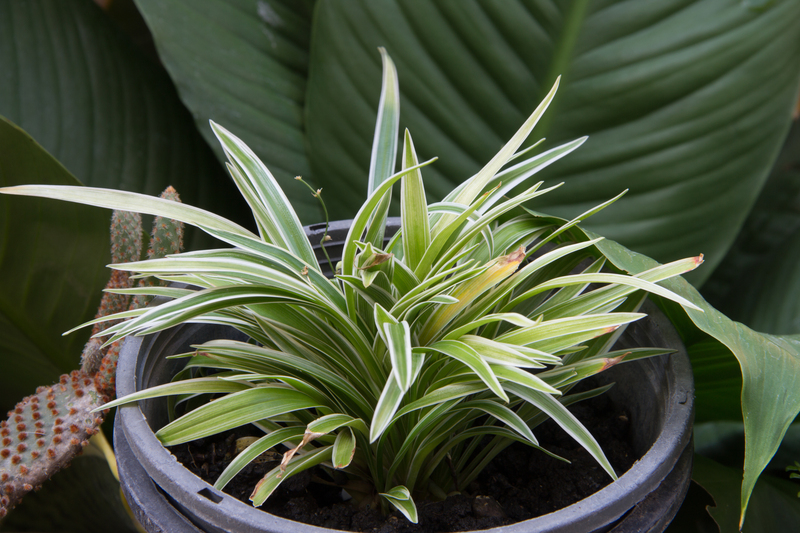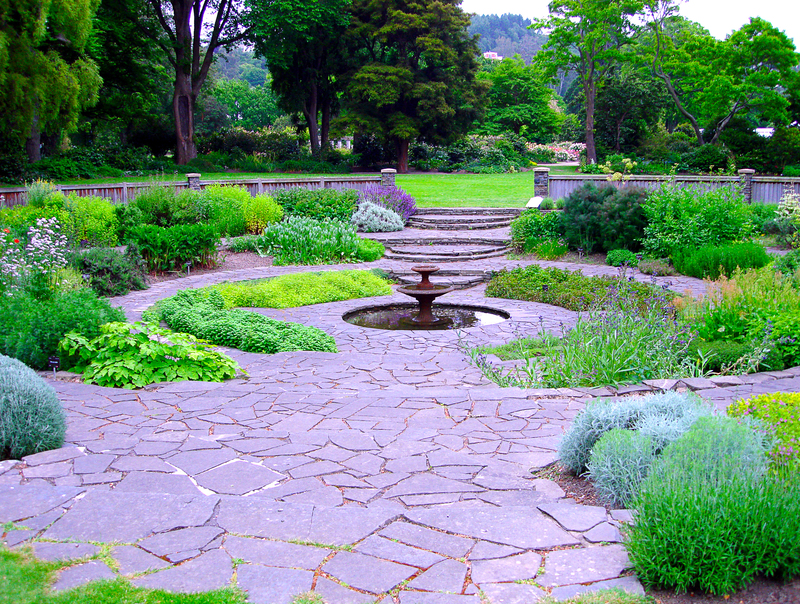Budding Beauties: 9 Key Tips for Novice Gardeners
Posted on 20/06/2025
Budding Beauties: 9 Key Tips for Novice Gardeners
Gardening is an inspiring journey that allows individuals to connect with nature, cultivate stunning outdoor spaces, and even grow their own food. However, for beginner gardeners, starting can feel daunting. With the right guidance and some enthusiasm, anyone can transform a window sill, balcony, or backyard into a vibrant garden. Whether you're hoping to nurture blossoming flowers, lush vegetables, or simply add greenery to your space, this comprehensive article reveals nine essential gardening tips to help create your flourishing oasis. Let's explore these actionable steps to ensure your gardening adventure is enjoyable, educational, and rewarding!
1. Start with the Right Tools
As in any craft, having the correct tools is half the battle. For first-time gardeners, assembling basic but quality equipment helps set you up for success.
Essential Gardening Tools for Beginners:
- Gloves: Protect your hands from dirt, thorns, and blisters.
- Hand Trowel: Vital for digging holes, planting, and transplanting.
- Pruners: Keep plants healthy by trimming dead stems or leaves.
- Watering Can or Hose: Essential for regular and targeted watering.
- Spade and Fork: Ideal for turning soil and breaking up clumps.
- Rake: Clears debris and smooths out soil or mulch.
Quality matters more than quantity; well-made tools last longer and make gardening more enjoyable. Over time, you'll build a toolkit tailored to your growing space and needs.

2. Pick the Perfect Spot for Your Garden Sanctuary
Location is fundamental for growing thriving plants, whether you have a container garden on a balcony or a plot in the backyard. Site selection directly impacts plant health and productivity.
Consider the Following for Best Results:
- Sunlight: Most vegetables and flowers need 6-8 hours of direct sun. Observe your outdoor space to discover those sunny patches.
- Soil Drainage: Avoid low areas where water pools after rain, which may cause root rot.
- Accessibility: Choose spots that are easy to reach for watering and maintenance.
- Wind Protection: Some plants are sensitive to strong winds; a hedge or fence offers shelter.
Tailor your garden layout to maximize light and protect vulnerable seedlings. Assessing microclimates within your space pays off in healthier, happier plants.
3. Understand Your Local Growing Conditions
The secret to successful gardening for beginners is adapting to your environment. Every locale has a distinct climate, soil type, and growing season.
Key Factors for New Gardeners to Research:
- Hardiness Zone: Check your region's plant hardiness zone to choose species that will thrive.
- Soil Type: Soil can be sandy, clayey, loamy, or rocky. Simple at-home kits help determine your garden's soil characteristics.
- First & Last Frost Dates: Learn when to plant sensitive annuals to avoid frost damage.
Gardening books, local extension services, or expert nursery staff can provide valuable insights about your area. Adapting to your conditions increases your odds for success and minimizes frustration.
4. Choose the Right Plants -- Play to Your Strengths
One reason new gardeners struggle is planting species unsuited for their growing conditions. Opt for easy-to-grow plants that build confidence and yield fast rewards.
Classics for Budding Gardeners:
- Herbs: Basil, chives, mint, and parsley are easy and perfect for kitchen windowsills or small pots.
- Salad Greens: Lettuce, arugula, and spinach germinate quickly and don't demand much space.
- Marigolds & Zinnias: Both annuals are hardy bloomers that deter pests and look stunning.
- Sunflowers: Fast-growing and dramatic, perfect for kids and beginners.
- Tomatoes (bush varieties): Versatile and productive with proper support and sunshine.
Selecting hearty, pest-resistant plants with similar water and sun needs sets you up for a low-stress garden full of beauty and bounty.
5. Prepare the Soil -- Your Garden's Foundation
Healthy soil equals healthy plants. Before planting, invest in prepping your beds or containers for optimum growth. For many novice gardeners, amending and maintaining soil is an ongoing learning process but pays the biggest dividends.
Improving Your Soil:
- Test First: Use an affordable home soil test kit to check pH (most plants thrive in soil between 6-7.5) and nutrient levels.
- Add Compost: Incorporates organic matter, boosts nutrients, and improves texture; even a little helps enormously.
- Aerate: Loosen compacted soil with a fork or spade--roots require oxygen!
- Mulch: Spread organic mulch to retain moisture, moderate soil temperature, and suppress weeds.
Don't feel discouraged if your soil isn't perfect--it improves with patience and care. Container gardeners can purchase high-quality potting mix for great results from day one.
6. Embrace the Art of Watering
Plants depend on consistent moisture but hate soggy feet! Too much or too little water is a common challenge for beginning gardeners.
Basic Watering Guidelines:
- Morning Watering: Reduces evaporation, allows leaves to dry, and prevents disease.
- Deep, Infrequent Watering: Encourages roots to grow down instead of staying at the surface.
- Check Soil Moisture: Stick your finger one inch into the soil--if it feels dry, water well.
- Consistent Schedule: Container plants may need more frequent attention than ground beds.
Observe your plants for signs of thirst (wilting leaves) or overwatering (yellowing or mold). Each species has individual needs, and learning to "read" the signs is part of every new gardener's growth!
7. Feed Your Budding Beauties
Just like people, plants thrive with balanced nutrition. While compost and healthy soil often provide ample nutrients, many budding gardener tips include a little extra supplementation to spur lush growth and blooms.
Feeding Advice for Beginnings:
- Slow-Release Granular Fertilizer: Sprinkle at planting time for months of gentle feeding.
- Liquid Fertilizers: Great for quick green-up--follow instructions to avoid overfeeding.
- Organic Options: Fish emulsion, compost tea, and worm castings boost soil life and structure.
- Don't Overdo It: Too much fertilizer can burn roots and stunt growth--less is often more!
Remember, healthy plants resist pests and diseases much better. Balanced nutrition is a cornerstone of any thriving newbie garden.
8. Stay Ahead of Weeds and Pests
Even the most beautiful beginner's gardens can fall victim to weeds or pests. Consistent and gentle management keeps both in check and reduces the urge to use harsh chemicals.
Simple Ways to Control Invaders:
- Mulch: A thick (2-3 inch) layer stops weed seeds from sprouting.
- Hand-Weeding: Pluck weeds while they're young for less effort and soil disturbance.
- Companion Planting: Strong-smelling herbs and flowers can deter common pests.
- Inspect Regularly: Check leaves (especially undersides) for pests or disease symptoms.
- Encourage Beneficial Insects: Ladybugs, lacewings, and hoverflies help keep pests in check naturally.
For minor infestations, try soap sprays or picking pests off by hand. Cultivate a natural balance, and your garden beds will reward you with health and beauty all season long.
9. Stay Curious and Keep Learning
No two gardens--or seasons--are the same, which is what keeps gardening fresh and rewarding! Beginner gardeners achieve the most when they cultivate a lifelong habit of learning and observation.
Ways to Grow Your Gardening Knowledge:
- Keep a Garden Journal: Track what you plant, dates, weather, and results to learn from each season.
- Join a Gardening Group: Connect online or locally for shared tips, troubleshooting and inspiration.
- Read Books and Blogs: Stay up-to-date with regional guides and expert advice.
- Visit Public Gardens: Gain firsthand ideas from local botanical spaces, trails, and open gardens.
- Observe Nature: Watch how native plants grow and respond to weather and conditions.
Patience is a gardener's best friend. With each season, your confidence, experience, and joy will bloom right alongside your growing plants.

Additional Advice for Your Novice Gardener's Adventure
Don't Be Afraid to Make Mistakes
Every *novice gardener* will kill a few plants--that's simply part of the process! Use missteps as lessons for the future, and celebrate each breakthrough. Gardens are endlessly forgiving if you keep experimenting and observing.
Enjoy the Journey
Remember, gardening for beginners is about the experience as much as the outcome. Savor quiet mornings among your flowers, the thrill of the first tomato, and sharing your bounty with friends and family. Let your garden be your outdoor sanctuary, laboratory, and art project rolled into one!
Conclusion: Grow Your Own Budding Beauty
With these nine vital tips for novice gardeners, you'll embark on a fulfilling journey that transforms your space and soothes your soul. Start small, stay patient, and don't hesitate to seek advice from experienced growers. Over time, your green thumb will develop, and your garden will become a blooming testimony to your care and curiosity.
- Build your toolkit and choose the right site for success.
- Adapt to your local climate and soil.
- Play to your strengths with easy, resilient plant choices.
- Feed, water, and protect your plants with gentle consistency.
- Keep learning, observing, and enjoying every stage of the process.
Your gardening journey has just begun--may your budding beauties bring color, tranquility, and delight for years to come!
Latest Posts
Building an Herb Garden That Inspires and Heals
Turn Your Garden into a Restful Haven with Seating Excellence
Crafting a Resilient Garden: Protecting from Severe Weather Risks

